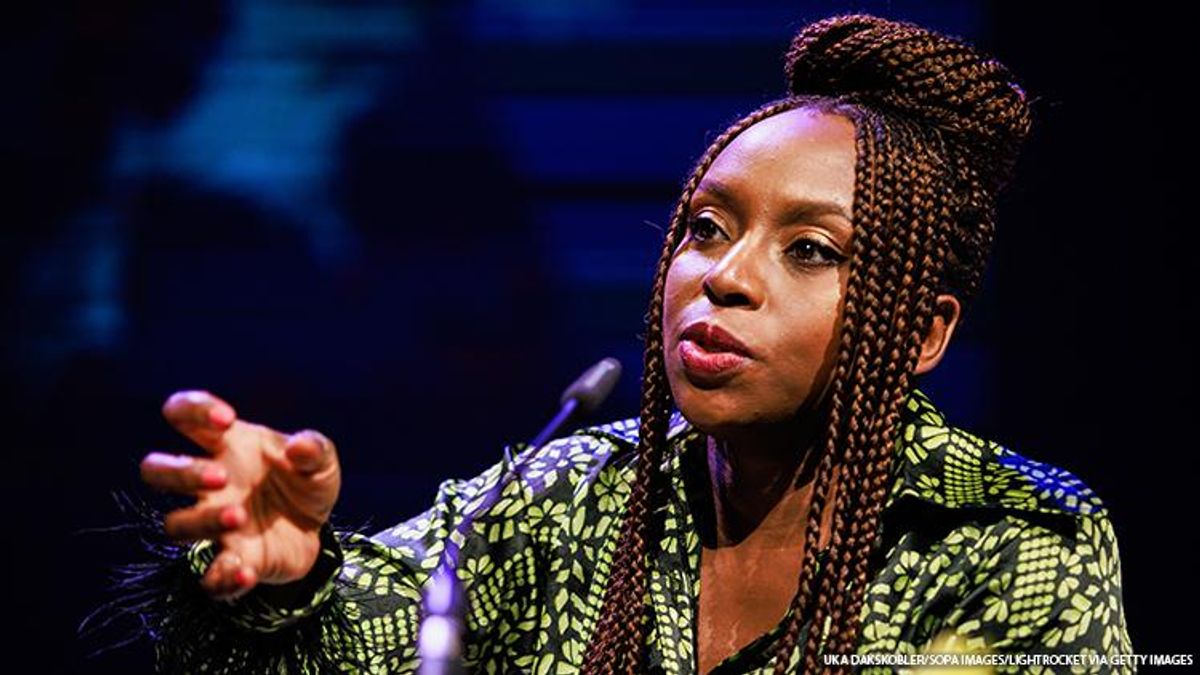Transgender
Novelist Chimamanda Ngozi Adichie Goes Anti-Trans Again

The acclaimed author is painting transgender rights as a threat to women's rights.
December 02 2022 6:06 PM EST
May 26 2023 2:45 PM EST
trudestress
By continuing to use our site, you agree to our Private Policy and Terms of Use.

The acclaimed author is painting transgender rights as a threat to women's rights.
Acclaimed novelist Chimamanda Ngozi Adichie is once again voicing anti-transgender views.
Ngozi Adichie, a Nigerian who lives part of the time in the U.S., went into trans issues in a recent interview with The Guardian in conjunction with her delivery of a Reith Lecture for the BBC. She received much criticism for a remark she made five years ago -- "When people talk about, 'Are trans women women?' my feeling is trans women are trans women" -- and has written about it a great deal.
In her Reith Lecture, she denounced self-censorship and recounted a conversation with an American at a book reading, with the American advising her that certain things should remain unsaid even if they're true. She did not reveal what comment spurred the conversation, so Guardian interviewer Zoe Williams asked if it dealt with trans issues.
Ngozi Adichie did not answer directly, but remarking on the criticism of her generally, she said, "Now this whole trans thing, I did not know I was walking into anything. I thought I had said something self-evident. So I think I just experienced a sadness. I felt, 'I'm on your side. We're a tribe. Why am I a controversial figure?'"
"So somebody who looks like my brother -- he says, 'I'm a woman,' and walks into the women's bathroom, and a woman goes, 'You're not supposed to be here,' and she's transphobic?" she continued.
The brother in question is "tall, bearded and handsome," Williams wrote, adding, "I suggest that he would look different if he were living as a woman." Ngozi Adichie responded, "But that's the thing. You can look however you want now and say you're a woman."
Williams noted that trans people don't want to be judged or discriminated against based on their appearance and stage of transition, and she asked if Ngozi Adichie's brother were transitioning, wouldn't she think that "treating him with dignity and respect was more important than where he went to the toilet?"
"Why can't they be equal parts of the conversation?" Ngozi Adichie replied. When Williams suggested that dignity should take precedence, Ngozi Adichie said that amounted to ignoring women's views. Williams pointed out that not all women consider trans people a threat. Ngozi Adichie responded, "No, of course not. And it would not reflect the experience of many people. I think that's different from saying, 'Women's rights are threatened by trans rights.'"
That last is questionable at best, but the two dropped the subject there. "Ngozi Adichie worries about creeping authoritarianism, about rightwing populism, about fake news and about democracy failing," Williams concluded. "These are exactly the same things that those she sees as the enemies of free speech worry about. If I think the free speech debate is being puppeted by the right to destroy the unity of the left, she probably thinks I'm someone else's useful idiot." Nonetheless, the conversation with Ngozi Adichie was "exhilarating," the journalist wrote.
Ngozi Adichie's novels include Purple Hibiscus, Half of a Yellow Sun, and Americanah.